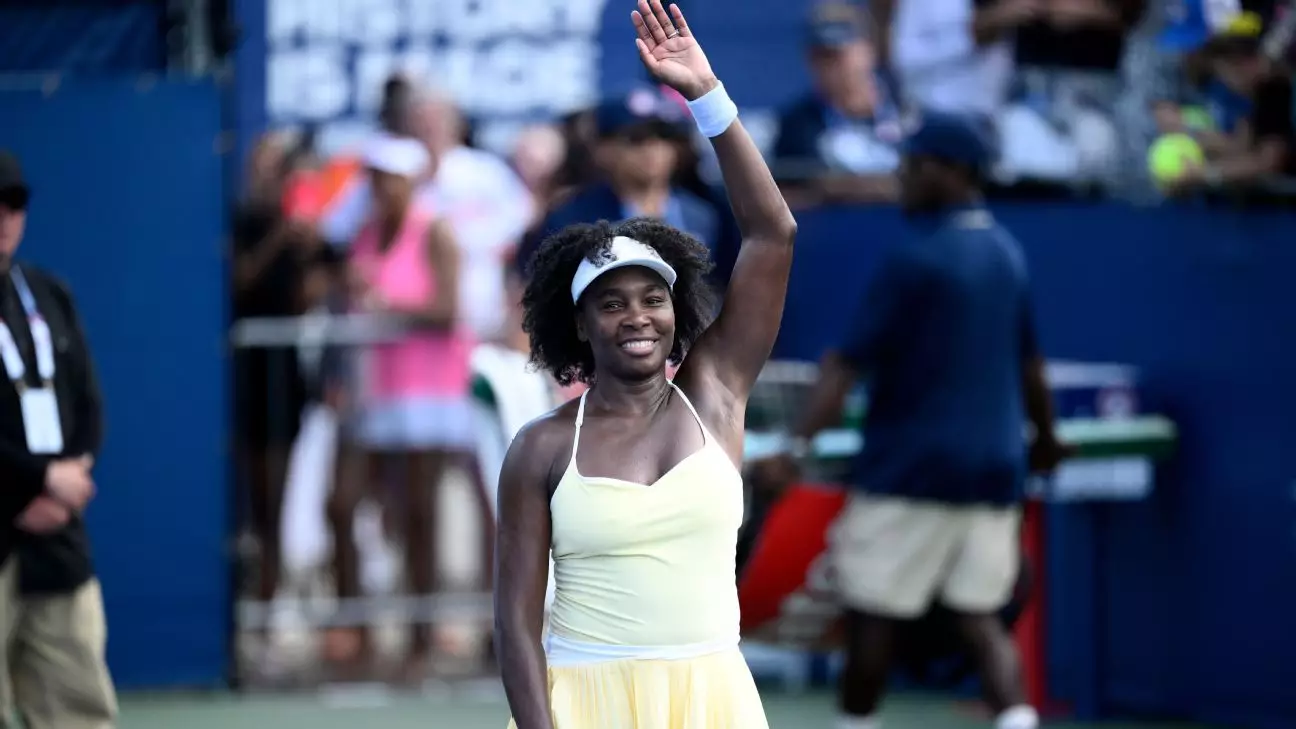Venus Williams, a titan of tennis whose legacy spans over two decades, recently defied expectations by stepping back onto the court at the DC Open after more than a year away. At 45, many might assume her career has long since faded into the annals of sports history, yet her appearance proved that age is merely a number when driven by genuine passion and relentless perseverance. Her comeback, even if modest in scale, exemplifies the unbreakable spirit that continues to define her journey. She skillfully balanced moments of powerful play with authentic joy that resonated through the packed stadium, reinforcing her reputation as not just a champion, but a symbol of resilience.
This return was not only about tennis; it symbolized reclaiming purpose amidst personal adversity. Recent health struggles, including a medical procedure to remove fibroids, remind us that Williams’ journey has been as much about overcoming internal battles as facing opponents on the court. Her willingness to compete again—even after a convoluted road fraught with physical and emotional hurdles—demonstrates that her spirit remains unbroken. Her presence in Washington was a testament to her desire to continue challenging herself, inspiring countless fans to view aging and setbacks as opportunities for resurgence rather than end points.
The Power of Experience and Authenticity in a Youth-Obsessed Sport
In the world of professional tennis, where youth often appears to reign supreme, Venus Williams stands as a powerful counterpoint—an embodiment of experience, tactical savvy, and authentic love for the game. Her match with Hailey Baptiste showcased not only her innate talent but her ability to connect with the crowd and her partner. The audience’s enthusiastic ovation and her animated interactions reflect a player whose influence extends beyond her strokes; she elevates the sport’s culture, reminding fans and players alike that longevity and passion are just as vital as raw athleticism.
Williams’ role as a pioneer—she is among the few to have won multiple Grand Slam titles in both singles and doubles—cements her status as a legend. Yet, her humility and genuine joy during her return underscore that her significance stretches beyond trophies. She consciously defies the stereotypical narrative that aging equals decline—she injects a potent message: that resilience, self-belief, and a love for the game can keep one’s flame burning brightly long after the peak years. Her involvement in tournaments like the DC Open rejuvenates the sport, adding layers of meaning that resonate with fans of all ages and backgrounds.
Challenging the Status Quo: A Voice for Enduring Excellence
Williams’ comeback also raises critical questions about how the sports world perceives aging athletes. Her desire to “play freer,” as she put it, seems to embody an urgent need to challenge narrow standards that equate youth with dominance. She isn’t merely participating; she’s disrupting the illusion that greatness diminishes with time. Her determination acts as a catalyst, challenging other players, coaches, and even younger athletes to reconsider what is possible when passion and discipline collide.
Moreover, her story underscores the importance of mental strength in sports and life. The fact that she was able to laugh, celebrate, and engage with fans during her match reflects an outlook rooted in perseverance rather than defeat. Her attitude is a lesson for all: resilience is cultivated through adversity, and true mastery involves embracing every stage of one’s journey—wins, losses, setbacks, and comebacks—as integral to growth.
While the tennis world continues to chase the new and the young, Venus Williams reminds us that the most compelling narratives are often those of enduring dedication and heartfelt love for the craft. Her willingness to step into the spotlight again, despite the obstacles, is a testament to her unwavering spirit. She embodies a powerful message that excellence is not finite nor reserved for youth alone—it is an ongoing pursuit fueled by passion, purpose, and resilience.

